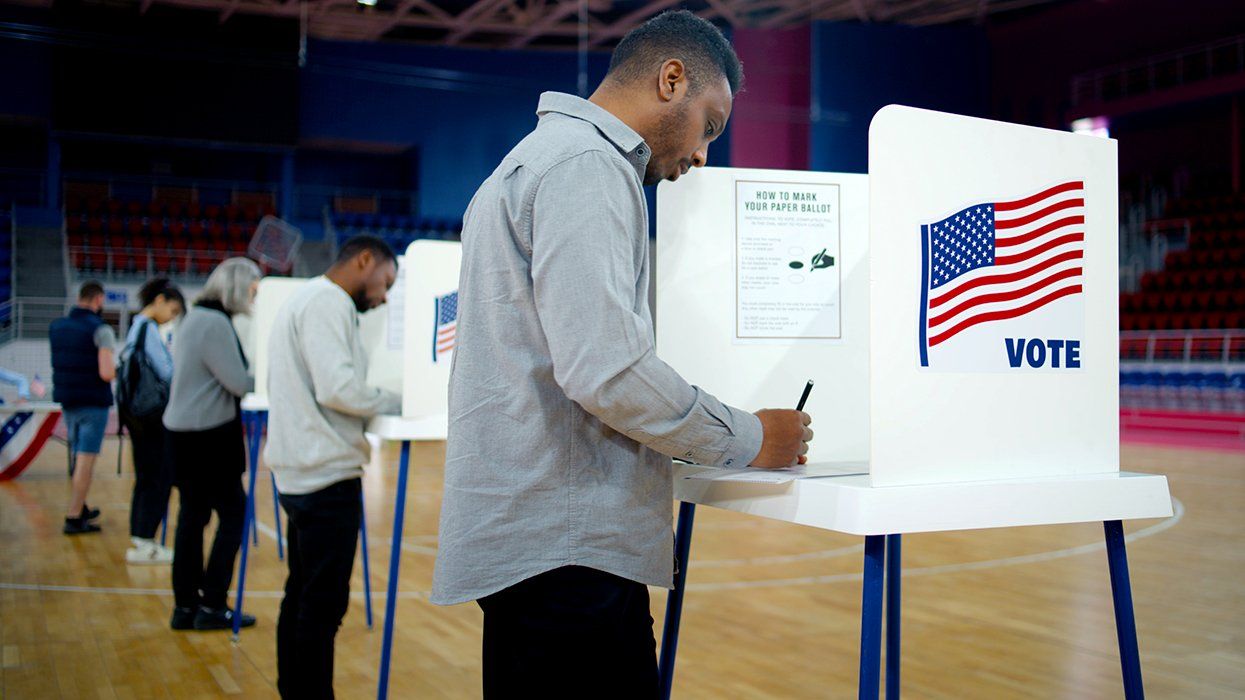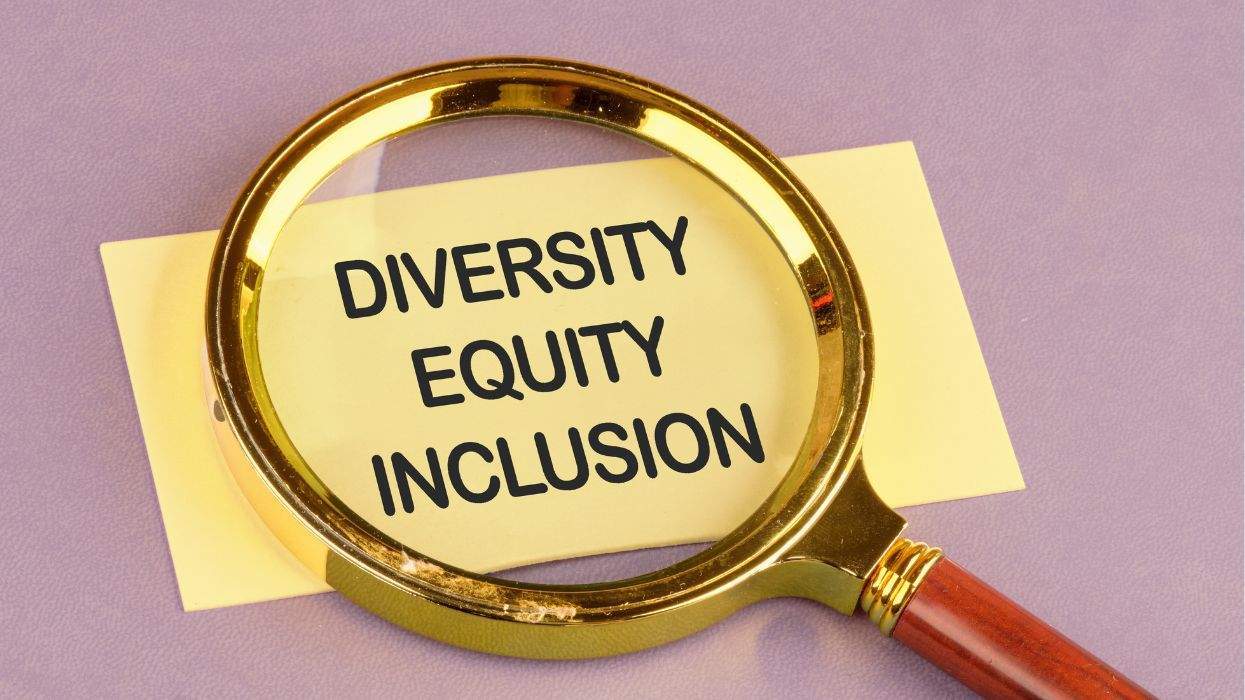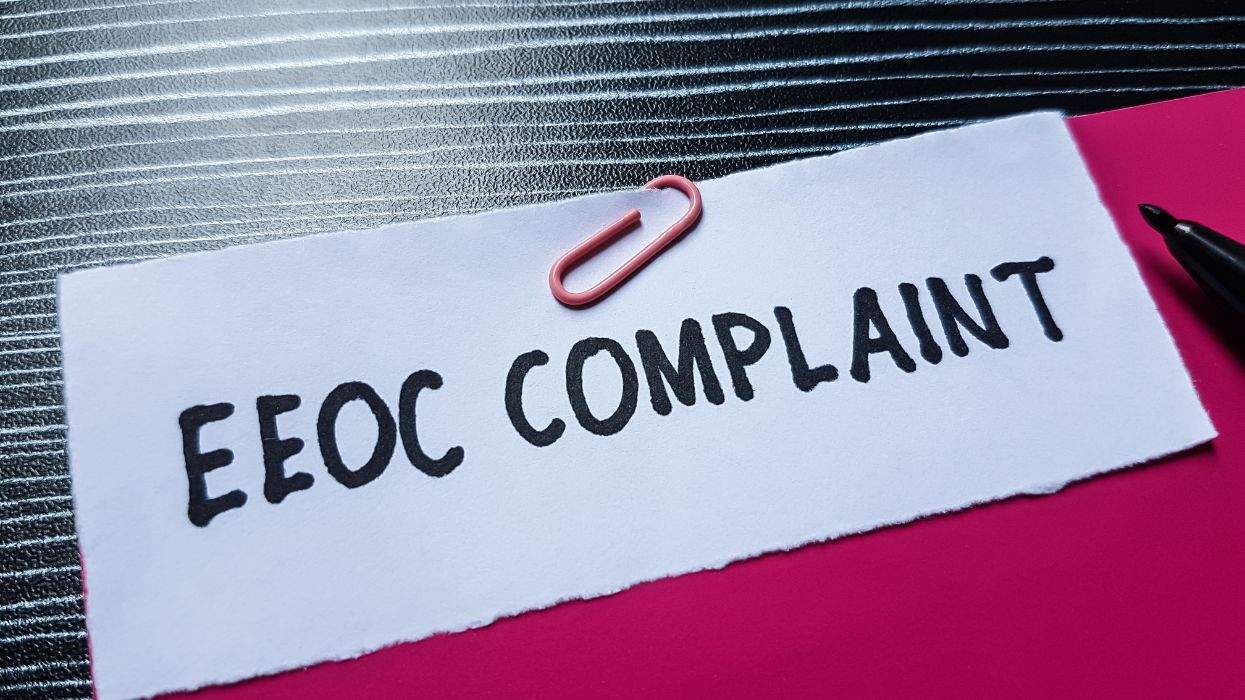Probably nobody needs to be told that voting is one of the most important things a U.S. citizen can do. But between racist ID laws to transphobic ones, voting can be a challenge.
Approximately 825,100 transgender adults in the United States will be eligible to vote in the 2024 elections, according to a recent Williams Institute study, and an estimated 43 percent (276,500) do not have the proper identification documents that correctly reflect their name or gender. Therefore, this group "may face barriers to voting in person" due to a "mismatch with their information as listed on voter registration rolls" or "because of voter ID laws."
Before election day, here are some ways to make sure you're covered to make your voice heard.
Given the choices before us in this year’s presidential election, that’s particularly true, and let us not forget that down-ballot races matter greatly as well. But maybe you’re not registered to vote, or you fear encountering barriers to voting. So here’s a handy guide.
How to register to vote
The answer is that each state or territory sets the regulations. But so you don’t have to to blindly Google your state or territory and “voter registration,” there’s a centralized resource: Vote.gov. Here you can select your state or territory and find out how to register; update your name, address, or political party if you’re already registered; check your registration status; and get a voter registration card. Note that you don’t have to present a registration card in order to vote.
In most states and territories, you can register online. You can also register by mail in most of them. The U.S. Election Assistance Commission offers the downloadable, printable National Mail Voter Registration Form, which is available in 21 languages and is accepted everywhere but New Hampshire, North Dakota, Wisconsin, and Wyoming. If you prefer to register in person, you can do so at your state or local elections office (find them here) or your state motor vehicles office.
Can I vote by mail — or early?
In many states and territories, yes. Some have established voting by mail only; others offer it as an option — if you’re going to be out of town, are a U.S. citizen living abroad, or simply prefer to vote by mail. Some also offer drop boxes for these ballots, and in many areas, you can vote early in person. And no, mail-in or drop-off voting does not increase the chance of fraud, contrary to the assertions of some politicians.
Check here to find out about mail-in or absentee voting in your area, and here for information about early voting. This link can help you find election officials in your state who can help you find where to vote. Also, many states send out voter guides that with information about candidates and ballot measures, and they often provide the voting location for your address.
Do I have to show a photo ID to vote?
Thirty-six states have voter ID laws, 33 of which conduct their elections primarily in person. “The strictest of these voter ID laws require voters to present a government-issued photo ID at the polling place and provide no alternative for voters who do not have a photo ID or, as is often the case for transgender voters, have an inaccurate photo ID,” notes a recent report by the Williams Institute.
VoteRiders.org has information on ID requirements in each state. If you’re trans, Advocates for Trans Equality has a checklist to help you comply with voter ID laws.
Also, Republicans in Congress are pushing legislation that would require voters to provide proof of U.S. citizenship. However, it’s already illegal for noncitizens to vote, and the bill appears to be aimed primarily at demonizing immigrants and anyone of Latinx heritage. President Joe Biden has vowed to veto any such bill.
What if I am unhoused, have a disability, am in the military, am away at college, or have another particular need?
Scroll to the bottom of Vote.gov’s “Guide to Voting” page to find assistance with all these situations and more.
What if someone at the polls questions my right to vote?
They may be wrong about your rights. Check out the U.S. Department of Justice’s Know Your Voting Rights Guide to learn about federal laws protecting your voting rights and how to report violations. The DOJ also offers information on laws that protect against voter intimidation, provide for assistance for people with limited English language proficiency, and much more.
And remember, your vote makes a difference. Biden beat Donald Trump by only a little more than 10,000 votes in the battleground states of Arizona and Georgia in 2020. The race between Trump and Kamala Harris is likely to be just as close this year in those states and other swing states, such as Michigan, Pennsylvania, and Wisconsin. Your vote will also affect both houses of Congress, state legislatures, and local government. So make sure you're registered — and vote!















